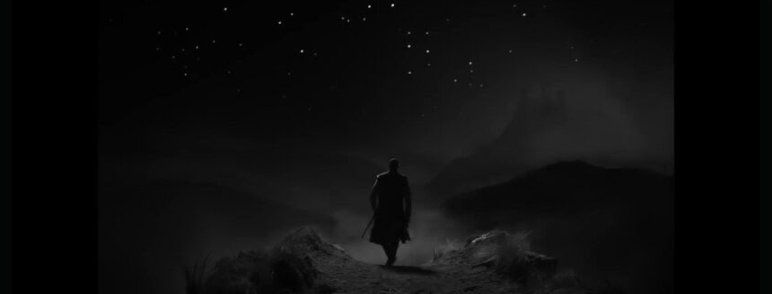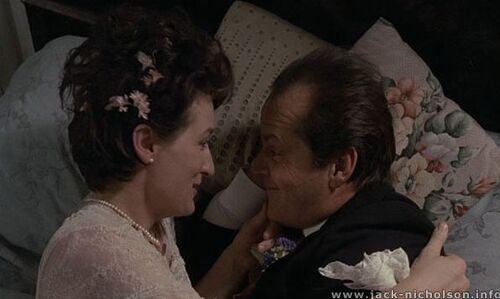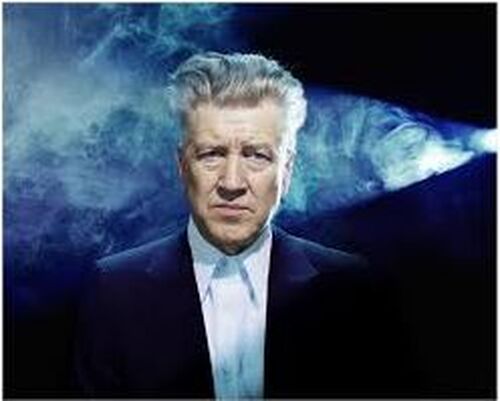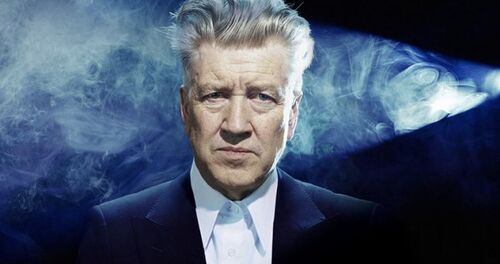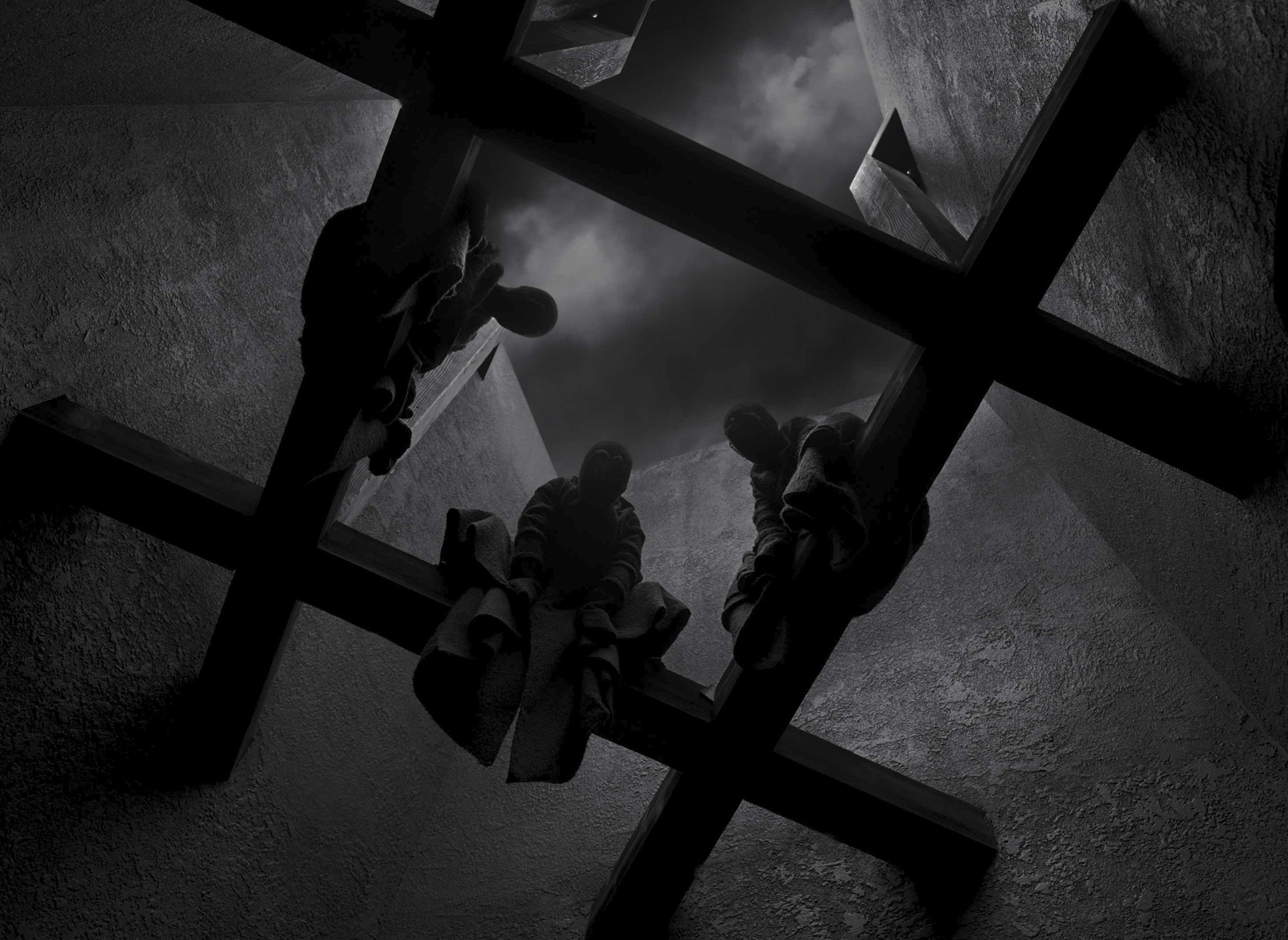
The Tragedy of Macbeth Review
 "Wherefore could I not pronounce 'Amen'?
"Wherefore could I not pronounce 'Amen'?
I had most need of blessing, and 'Amen'
Stuck in my throat."
What does one do when they have committed the most wicked evil against their fellow man, but ask for grace? What does one do who knows this act has necessitated further heinous killings do but ask for repentance? Finally, what does one do when grace and repentance are unattainable because the good subject that is able to ask for either has been killed along with the ones he has killed.
Macbeth, who made the decision to kill the king he had been so loyal to could not fathom what that deed would do to him before it had been done, was writhing internally as he uttered the lines: "Wherefore could I not pronounce 'Amen'?I had most need of blessing, and 'Amen'
Stuck in my throat." He anticipated a relief and a certain ecstasy upon becoming King, fulfilling the prophecy given to him and rising to prominence but all he was left with was a searing guilt and decent into madness. He instantly became a desperate man, both afraid of his capacity to commit such a violent act and surprised by his thirst to do it again. Only after being as close at is required to stab someone to death can the intimacy and manipulation of space be understood by Macbeth.
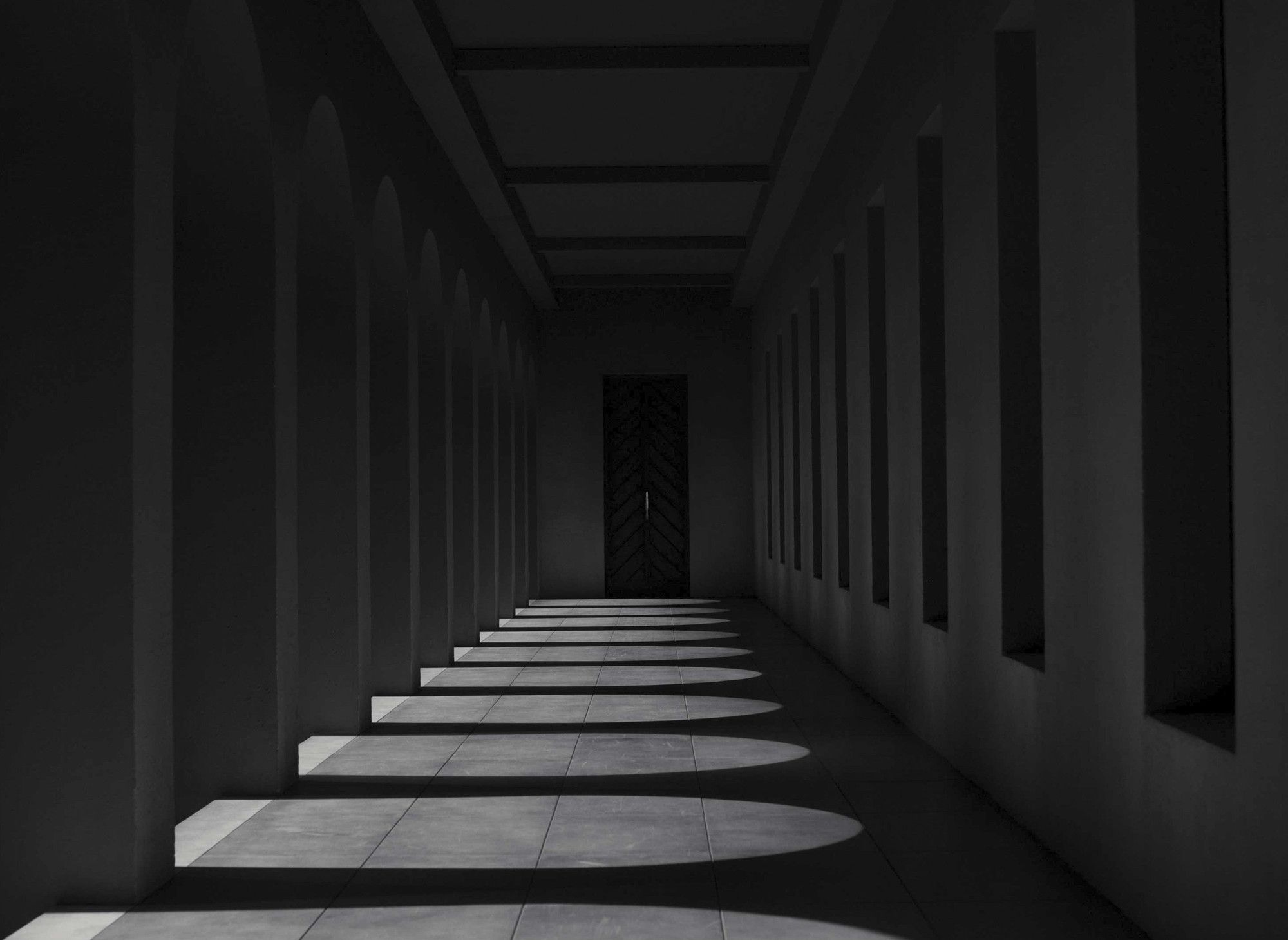
Joel Coen, who aptly opted to keep the full title of the Shakespeare play often shortened simply to "Macbeth" to fully immerse the audience into this individual's tragic life. Macbeth was a loyal lord but nothing more than a cog in the machine when he is visited by a trio of witches who delivery a prophecy to him and his most loyal comrade Banquo (Bertie Carvel) that Macbeth will be named Thane and eventually King of Scotland and that Banquo will beget a line of kings without ever being king himself. As the first part of the prophecy becomes true with Macbeth being named Thane after the previous Thane's act of treason and death sentence, he writes to his wife eager to share the news with her and intrigued by bringing the rest of the prophecy to fruition. Lady Macbeth (Frances McDormand) takes on none of her husbands curiosities or trepidations, and instead is so energized by her husband being named king that, upon his return home, she persuades him to kill the king himself immediately. The two of them plan to get King Duncan's (Brendan Gleeson) guards so drunk that they can easily be killed by Macbeth alone before Duncan himself. Equally as energized as his wife to become king, Macbeth goes forward with the plan and only after seeing the dead bodies can he realize the toll that it leaves to kill other human beings. Thus begins Macbeth's tragedy, to continue living is torture, to continue killing is torture, but both of which are required of him to finish his path to the throne that to abandon at this point would have all the killing for naught. Macbeth, of course, does go on killing and does become king but not without an immense price.
The entire film is a masterclass of acting. Denzel Washington's Macbeth and Frances McDormand's Lady Macbeth are as inspired as there casting. Obviously, these two are a bit older than the duo typically cast to bring the ruthless, scheming, political power couple to life allowing the audience to understand their motivations in a different way than your typical understanding of youthful ambition. The power hungry motives that propel a young man to commit the murder of his superiors to steal the throne cannot be viewed the same as the motives of a man who has steadfastly devoted his life to the ranks. Likewise for his wife, as a seasoned Lady Macbeth will be less swayed by the prestige and accompaniment that being married to the king brings to a life that is closer to being over than to beginning. Their advanced years and position in the ranks had them previously stepping closer "the way to dusty death" without much prestige or circumstance. In brilliant fashion, what the audience sees onscreen is the more real and human version of Francis and Claire Underwood--two people with a merciless fixation on the crown that yet remain so wholely devoted and tender toward each other that disarms them to us.
Denzel Washington is a revelation in the role of Macbeth. He completely transforms from a weary modest soldier to an assured king. He's still Denzel, but the verbal ticks ("huh") seem to be a part of his character's rather than the actor. He believes he deserves the prophecy delivered to him, and cannot let go of the idea of being king once he hears it. Akin to the modern-day pension system, he is like so many that believe in the future they thought they were creating when, upon retirement, realize that what they put into their whole lives they are not getting. It's an undeserving blow to find out you were not destined and worked for something better so the promise of some sort of immortality is too sweet not to chase.
It's solely because Denzel is such an accomplished actor that he can take part in such evil, even in Shakespearean standards, and still come out with the sympathy of the audience. He murders his closest friend and ally and orders the slaughter of children embodying the same nihilism that destroys him without alienating the audience that sees that the deeper he goes down the well of crime the more tormented he becomes. the grief and remorse multiplies with the bodies along with his seeming belief in the futility of it all. His suffering and descent into madness allow the audience to be remorseful and almost feel sorry for Macbeth. We see his exhaustion during the fight which will be his last and celebrate, not his death, but the relief that his death will bring him from the torture of his thoughts and actions.
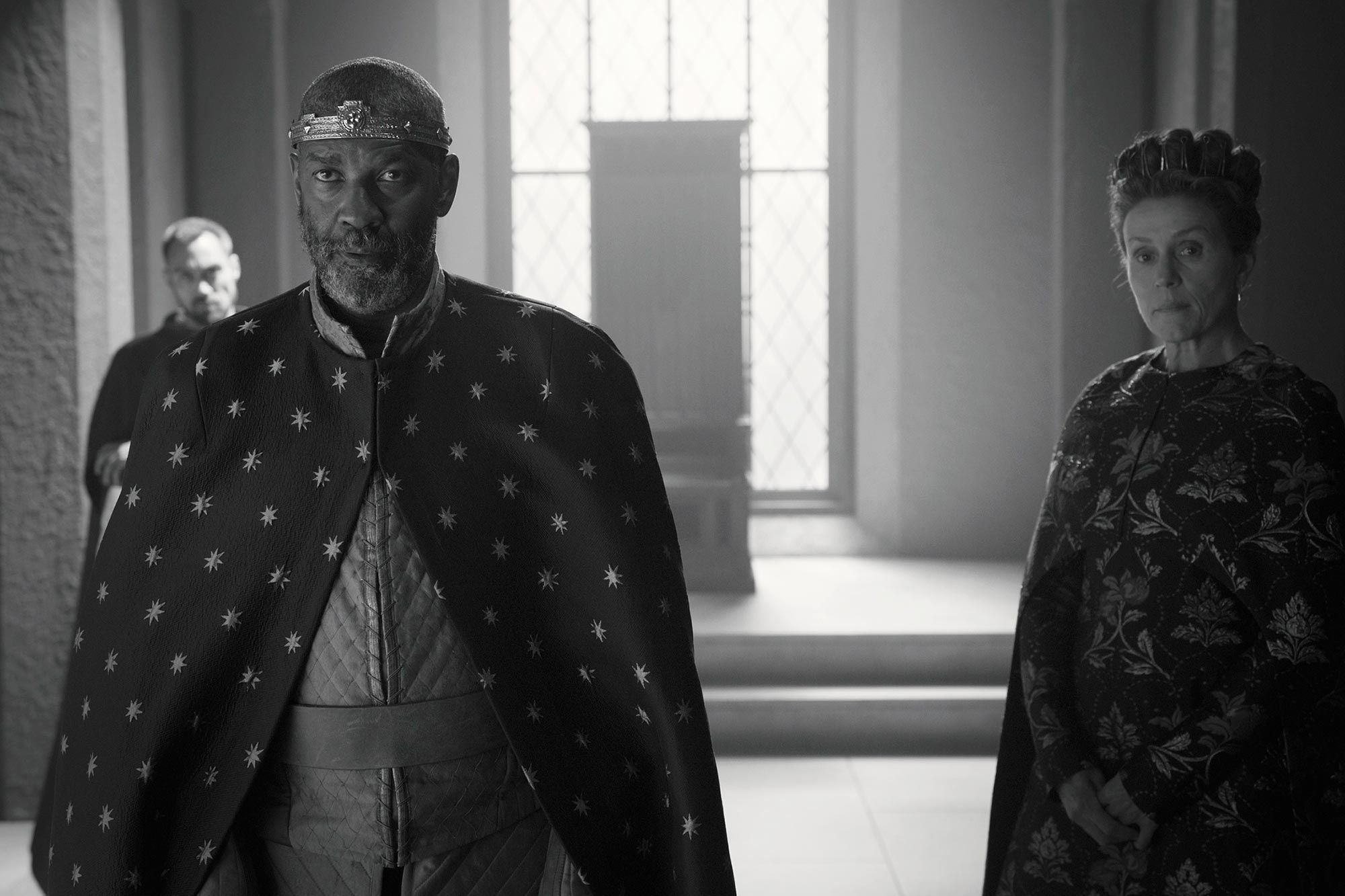
Equally as captivating is Frances McDormand embodying the role of Lady Macbeth. A character that is often reduced to a Disney-like caricature of Disney villainy, McDormand maintains the ambitious, coldly calculating, malicious and manipulative Lady Macbeth's control of her husband with her characteristically reserved onscreen presence allowing her to remain human. She is consistently driving a vehicle of opposites, able to convey the callousness of the character without sacrificing the passion she has for her husband. At the core--this is a woman who both loves and adores her husband, seeking the crown for her husband's benefit not the benefit it will bring her. She is able to manifest the cold pragmatism needed to create the plan and can anticipate the emotional consequences in a way that her husband cannot. She brings to life the Machiavellian spirit that motivates her character without sacrificing the passion she has for her husband and the realization that he was not cut out for such wicked deeds as she watches him become a mere shell of the man she once knew. The Macbeths are always human and always in love until the prophecy they seek tears them apart.
The production design is otherworldly, almost entering the realm of fantasy. The behemoth sets that tower over the characters look like they were ripped from the West End stage and blown up to be cinematic and prevent the audience from forgetting that they are watching something that originated on stage 400 years ago and has been reimagined for the screen. A world is created that you could only see on film that maintains its roots and tradition on stage. Each elongated hallway and tower with a hole in the top seemed to be left open always reminding the character of the All Mighty's disapproving eye watching their actions add to the isolating and alienating environment each character inhabits. The sound stage that was used for filming adds to the cold almost clinically insulated atmosphere the characters are imprisoned to. The gorgeous greyscale bringing the right v. wrong dichotomy to life in an interesting way while creating a rich and deeply engaging sense of tone.
Coen veteran Carter Burwell's string-heavy score is the only thing that breaks up the loneliness by bringing a much more ominous presence to keep the characters company. The plucking strings that sound like literal birds of prey out to attack the inner turmoils of the Macbeth's bringing the reality of their hidden deeds to the forefront of their minds--the cacophony adding to their nightmare. Sound designer Craig Berkey who aided in making one of the most subtly beautifully sounding films I've ever seen, Roma, along with Sound mixer and editor Skip Lievsay who won an Oscar for his work on Gravity brings every hollow step, every dagger drop, and every heartthrob to life--the seemingly impossible task of bringing the audio sensations of the stage to the screen creating an overall terror-infused quality to the film.
Coen, who uses Shakespeare's words here unchanged, only decides to cut minor plot points from the story choosing instead to have the actors injecting Elizabethan English into 2021. The blend of stage and screen, the quiet intensity of the acting bringing the characters to life, the sound and score reverberating through the walls of castles and hallowed hallways straight to the experience of the audience all work together to deliver a heart-stopping experience at the same time as a deeply searching drama. The Academy will squander another chance. What should be celebrated worlds over will be hardly seen and appreciated. What should take home no less than six Oscars will be lucky to get one, and that dagger to the heart is the real Tragedy of Macbeth.
